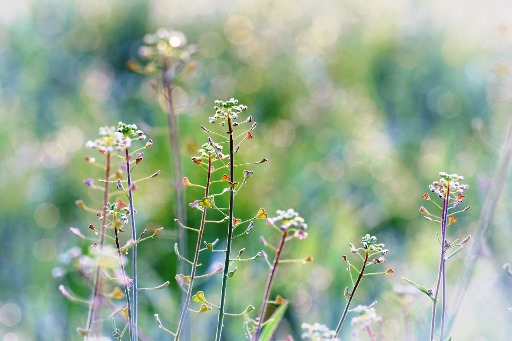Spring Has Sprung — Along with Seasonal Rhinitis
 Seasonal Rhinitis is another term for hay fever or seasonal allergies. Late winter and early spring are the time of year when everything comes into bloom in Florida and pollen is high. The Weather Channel app for Android and Apple has a section called Allergy Forecast that reports the pollen outlook along with a breakdown of the type of pollen present: tree, grass and/or ragweed, as well as mold. Right now it’s predicting a “high risk of allergy symptoms for the next three days.” The role of allergy immunotherapy is important during this season!
Seasonal Rhinitis is another term for hay fever or seasonal allergies. Late winter and early spring are the time of year when everything comes into bloom in Florida and pollen is high. The Weather Channel app for Android and Apple has a section called Allergy Forecast that reports the pollen outlook along with a breakdown of the type of pollen present: tree, grass and/or ragweed, as well as mold. Right now it’s predicting a “high risk of allergy symptoms for the next three days.” The role of allergy immunotherapy is important during this season!
Reduce Your Exposure to Allergy Triggers
The Mayo Clinic advises that the following tips can reduce your exposure to the things that trigger your allergy signs and symptoms:
- Stay indoors on dry, windy days. The best time to go outside is after a good rain, which helps clear pollen from the air.
- Delegate lawn mowing, weed pulling and other gardening chores that stir up allergens.
- Remove clothes you’ve worn outside, and shower to rinse pollen from your skin and hair.
- Don’t hang laundry outside — pollen can stick to towels, bathing suits, etc.
- Wear a pollen mask if you do outside chores.
- Avoid outdoor activity in the early morning when pollen counts are highest.
- Keep your home and vehicle air conditioners on.
- Use high-efficiency filters in your home air-conditioning system.
- Consider the use of a portable HEPA air filter unit in the bedroom.
- Over-the-counter remedies like decongestants, oral antihistamines and nasal sprays can be effective; however, check with your physician for any potential concerns associated with combining these products with the medications you’re currently taking and your medical history.
Rinsing your nasal passages with a saline solution is a quick and effective way to relieve nasal congestion and flush allergens from your nose. Neti Pots and saline in squeeze bottles are available at most pharmacies.
